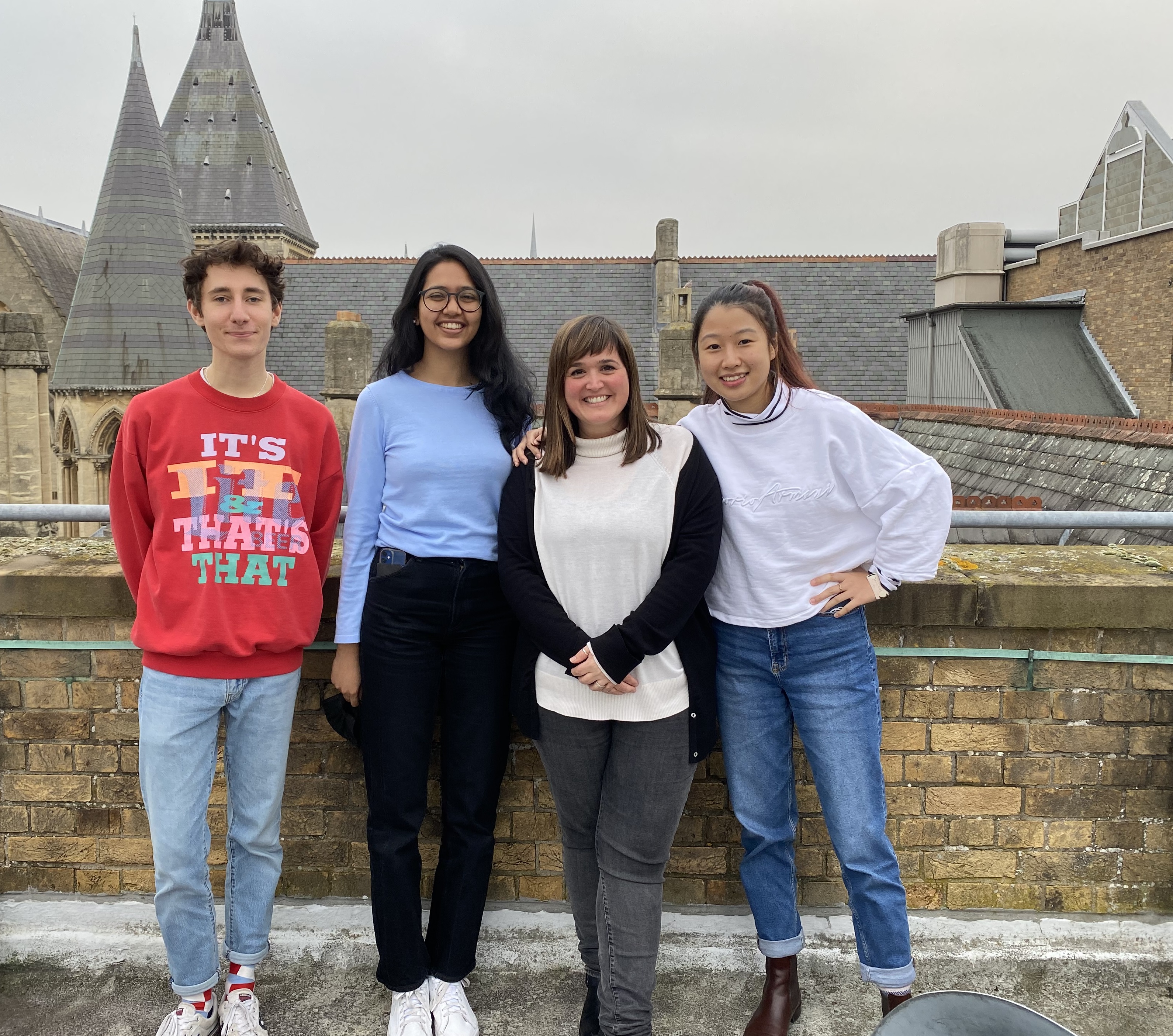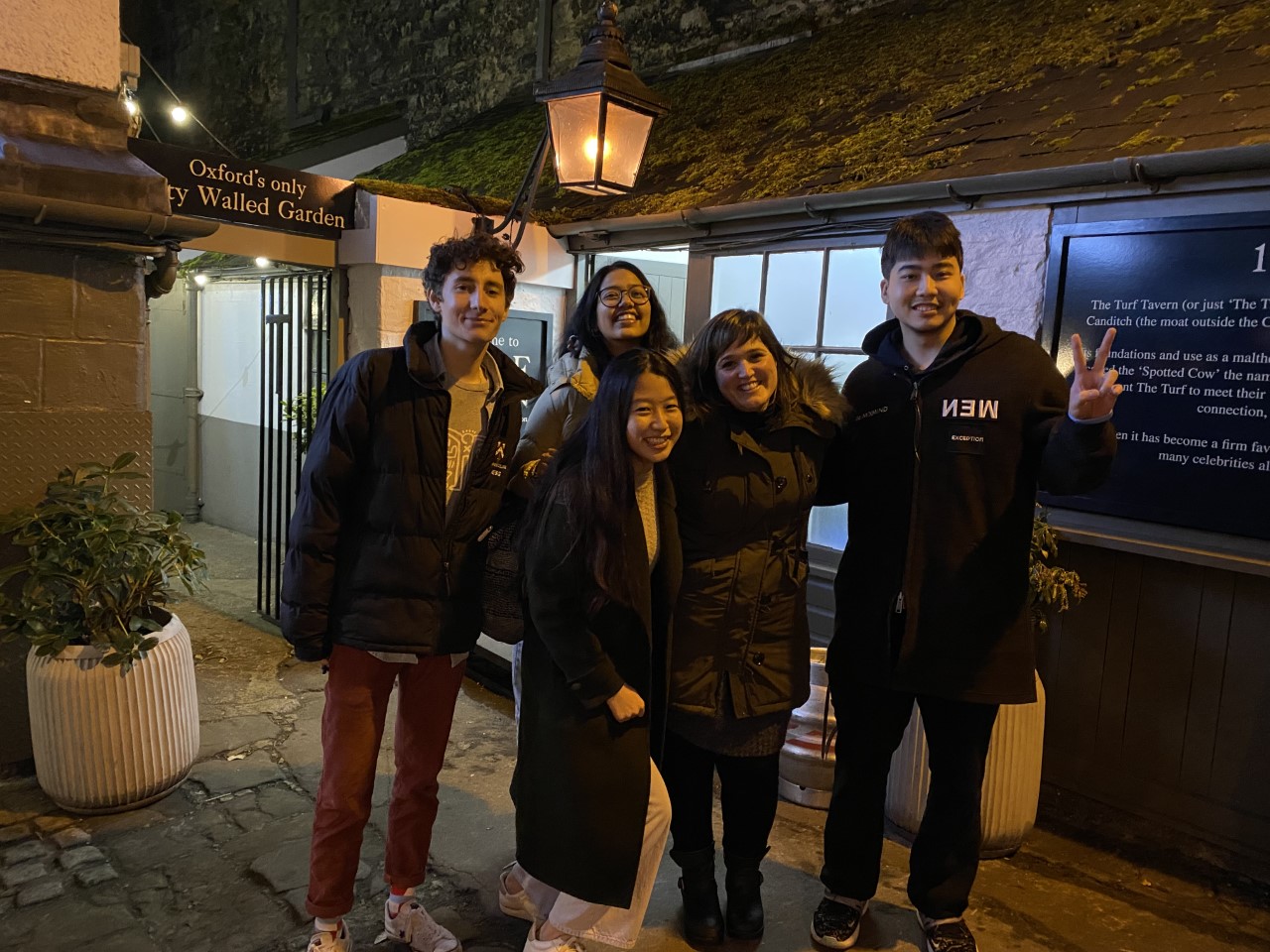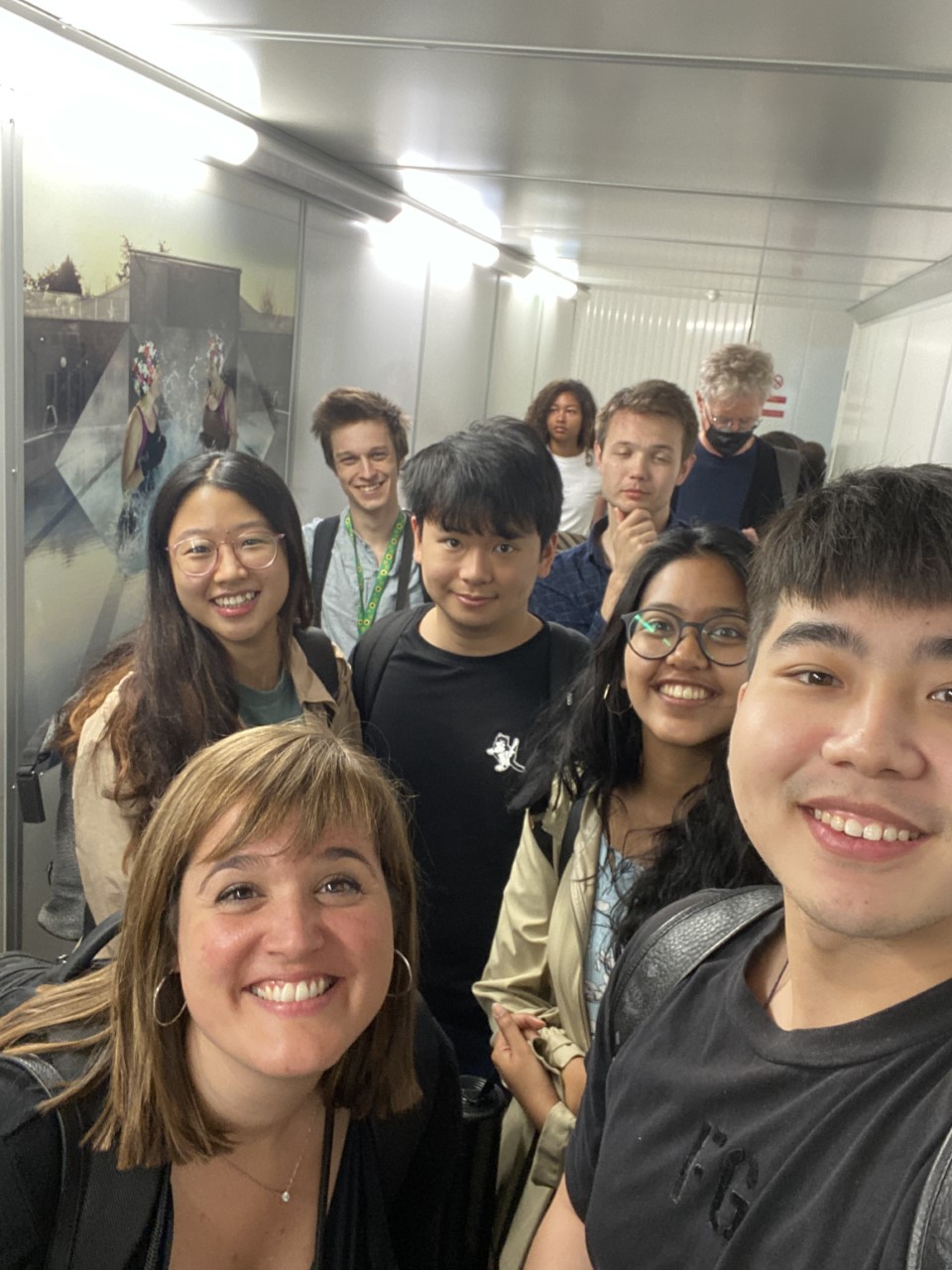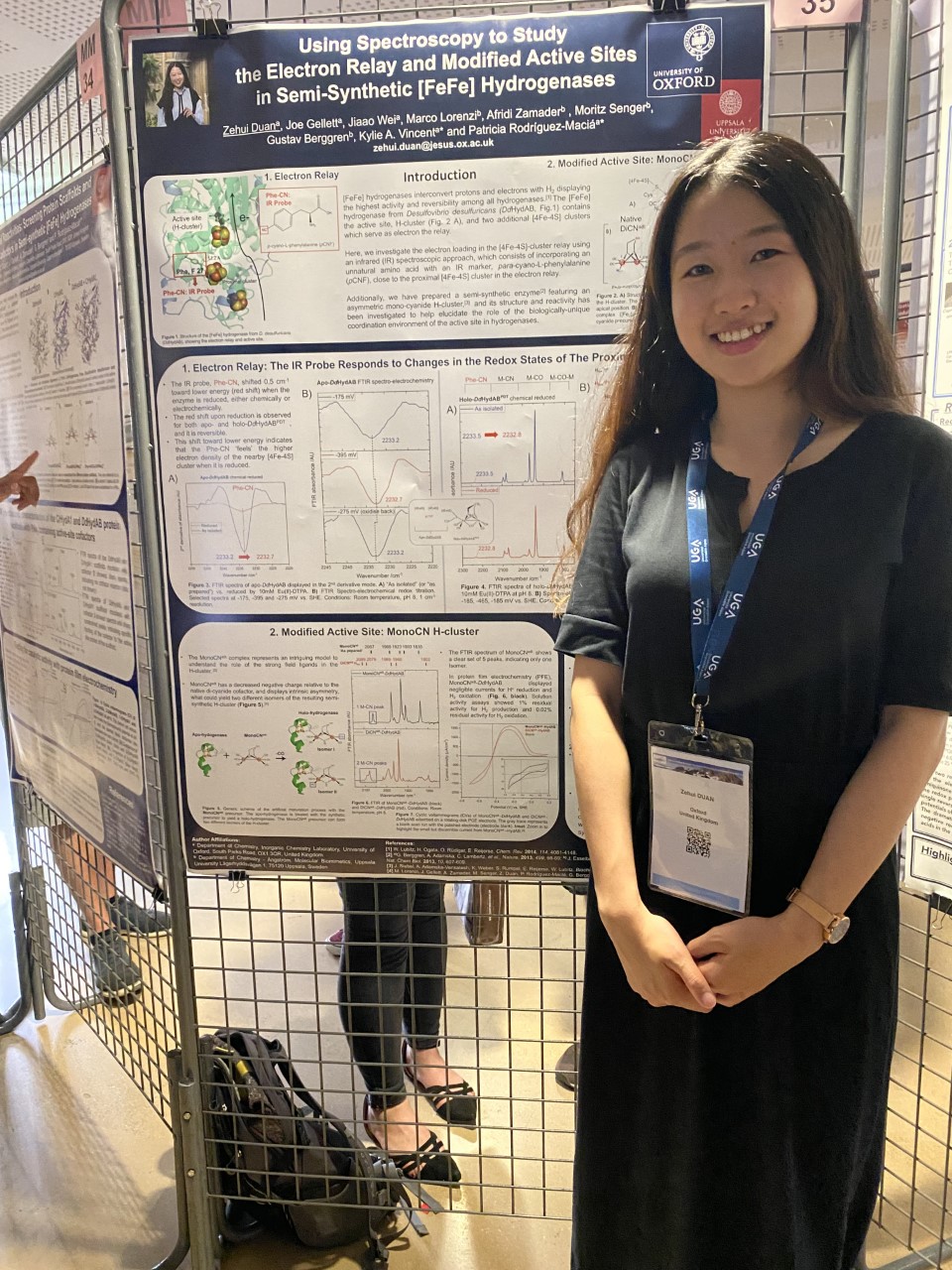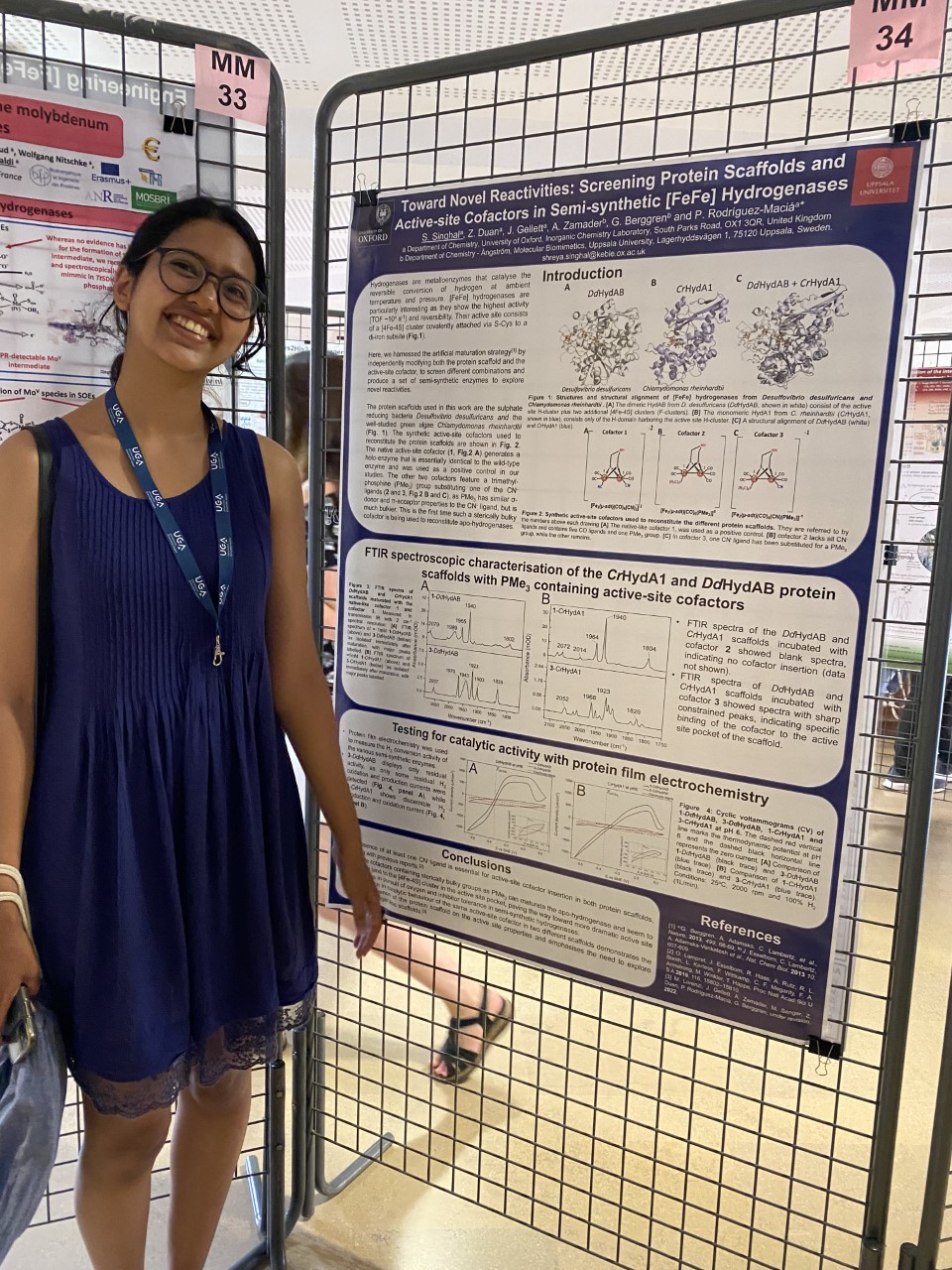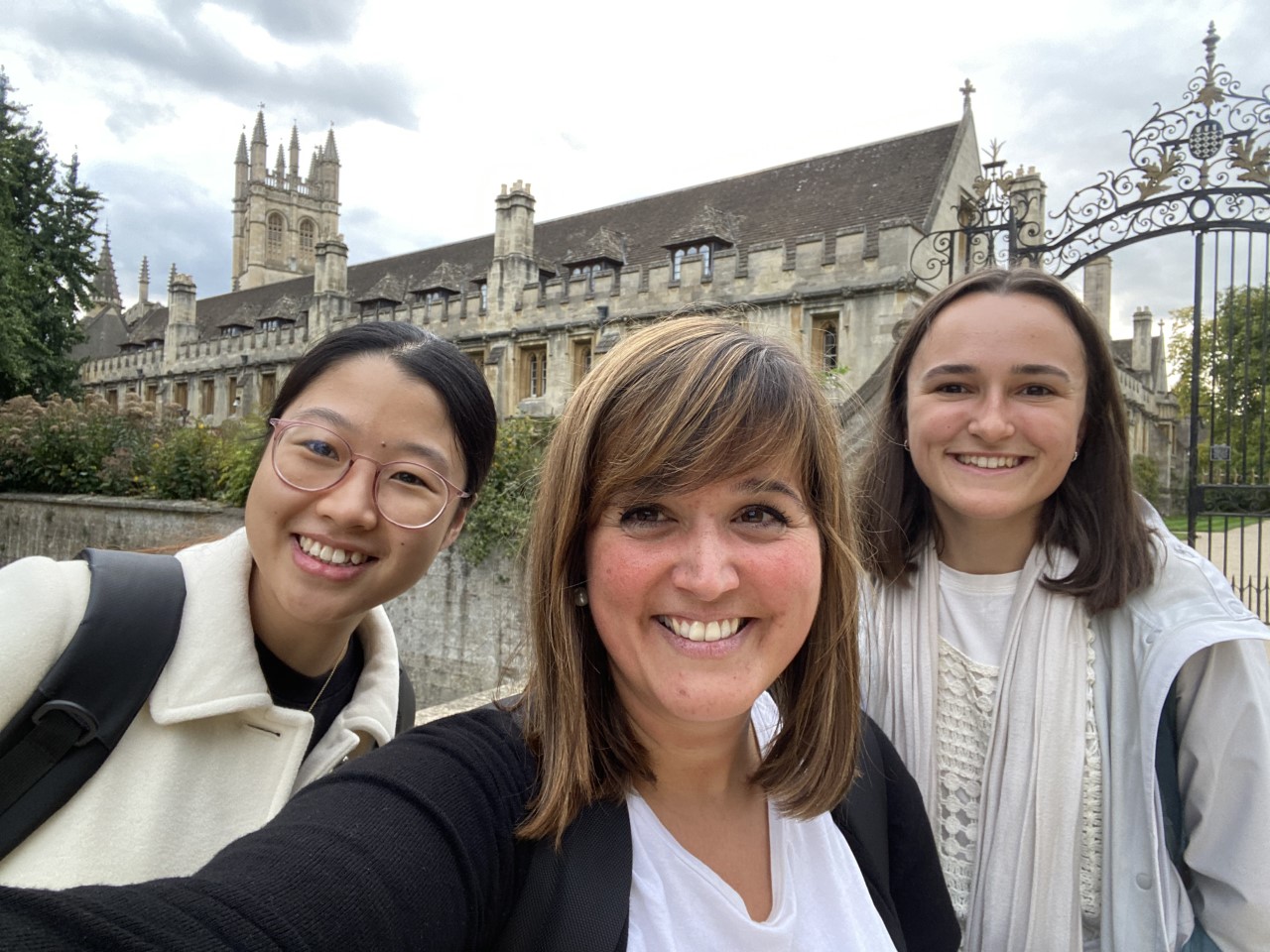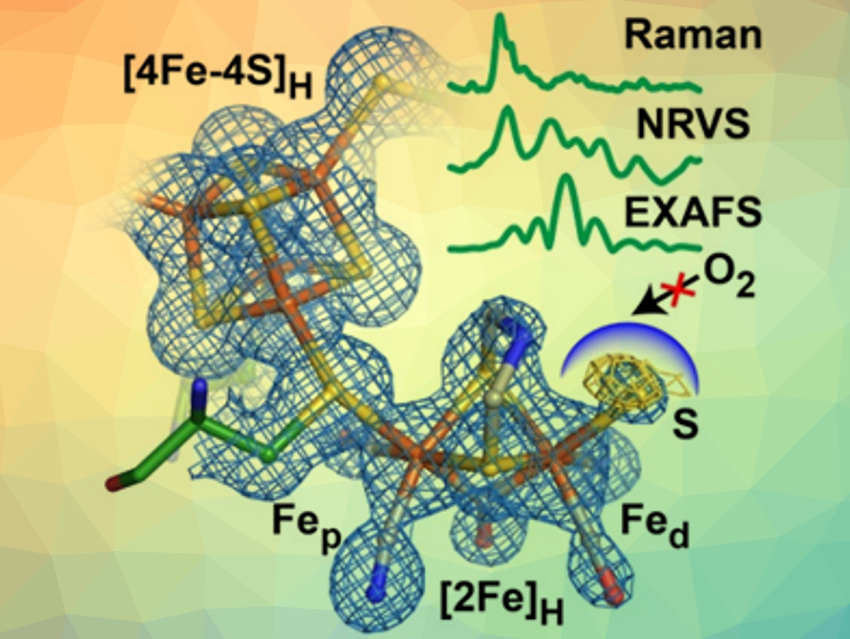
Department of Chemistry,
University of Oxford,
Inorganic Chemistry Laboratory,
South Parks Road, OX1 3QR
patricia.rodriguezmacia@chem.ox.ac.uk

Interested in joining us? If you are interested in doing a DPhil with us, there are different doctorate programmes available at the university, just get in touch!
We also support grant applications!
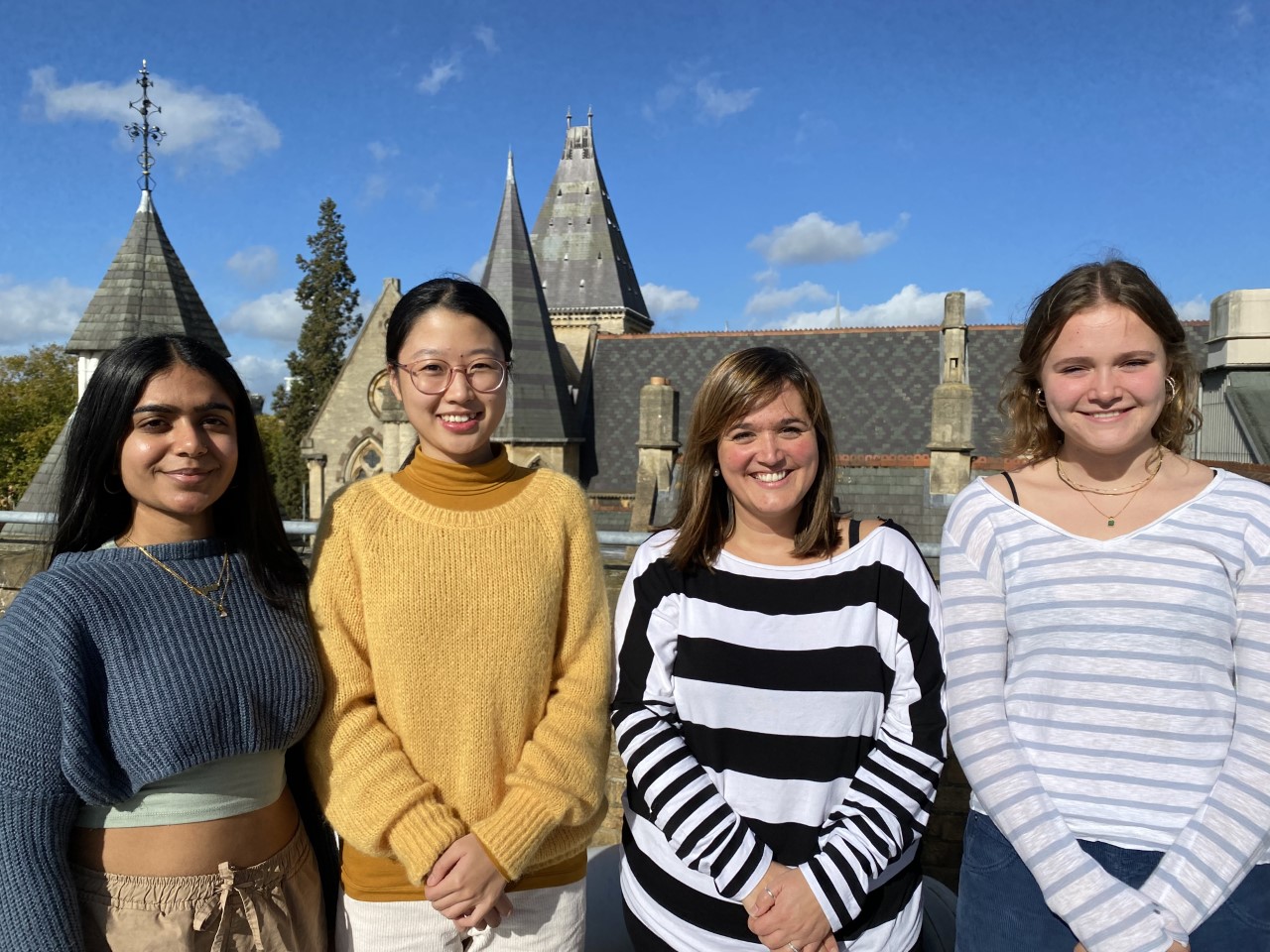
Rodriguez-Macia's research group
Rodriguez-Macia's research group has interests in the Bioinorganic Chemistry area embracing a range of different fields such as biology, synthetic chemistry and physical chemistry to learn from and mimic nature at the intersection of chemistry, biology and materials science. The ultimate goal is to acquire insight from the natural enzymes into the requirements for developing novel green catalytic processes, new synthetic materials and more efficient catalysts.
By investigating energy converting enzymes we aim to fully understand how, by using earth-abundant metals in their active site, they are able to perform key chemical reactions in a very efficient way. These reactions usually represent enormous challenges for chemists to carry out on a laboratory scale (e.g. reduction of nitrogen to ammonia, oxidation and production of hydrogen and reduction of CO2 to CO and formate).
The group focuses on two particular classes of metalloenzymes, hydrogenases and CO dehydrogenases and employs complementary spectroscopic techniques alongside electrochemistry to study the catalytic mechanism and the active site-protein matrix interplay in these fascinating enzymes. Rodriguez-Macia's group is passionate about exploring new protein scaffolds and active-site mimics to discover novel reactivities, as well as developing new techniques to be able to study all the intermediate states in the fast catalytic performance of these enzymes.
About Dr Patricia Rodriguez-Macia
Dr Patricia Rodriguez-Macia is a Glasstone Research Fellow in the Department of Chemistry at the University of Oxford, hosted within the Vincent group. She is also a Lecturer in Inorganic Chemistry at Magdalene College, and holds an E P A Cephalosporin JRF at Linacre College.
Patricia studied her undergraduate degree in Chemistry at the University of Alicante (Spain). She then moved to Germany to start her PhD at the Max Planck Institute for Chemical Energy Conversion (MPI-CEC, Muelheim) under Prof Wolfgang Lubitz' supervision. Her doctoral work focused on employing electrochemistry and infrared spectroscopy to perform mechanistic studies on hydrogenases and bio-inspired synthetic catalysts. Her work was recognised by the 2017 Ernst Haage Prize for outstanding doctoral dissertations.
Afterwards, she took up a postdoctoral position in the Inorganic Spectroscopy Department in MPI-CEC, to work in Prof Serena DeBeer's group, where she applied X-ray spectroscopy to study various metalloenzymes. Patricia joined the University of Oxford in 2020 as a PDRA in Prof Kylie Vincent's group. In 2021 she was appointed Glasstone Research Fellow to start her independent research.
On 2022, she was awarded the IBDG's 2022 Early Career Researcher Award for her high quality contributions in the area of metalloenzyme characterization and mechanistic investigation, naming her as a rising star in the field of bioinorganic chemistry.
Current members

Zehui Duan - DPhil student
Zehui is a first year DPhil student at Jesus College. She is co-supervised by Dr. Patricia Rodriguez Macia and Prof. Vincent. Her project focuses on using advanced spectroscopy techniques to study the iron-sulfur cluster relay of FeFe-hydrogenases. Besides chemistry, she also have interests in the culture of ancient Greece and Rome, and Renaissance art. In her spare time, she enjoys visiting museum, debating, and playing badminton.

Manon Lachmann - Part II (MChem) Student
Manon is a Part II (Masters') student in the group. She is in the 4th year of the MChem degree at Magdalen college. Her lab project focuses on semi-synthetic [FeFe] hydrogenases. She studies how replacing the bridgehead group in the synthetic active-site cofactors affects the electronic and geometric structure of the active site as well as the catalytic activity of the semi-synthetic enzymes. The main techniques she uses are FTIR specroscopy and FTIR spectroelectrochemistry. Outside of the lab, she enjoys seeing friends, cooking and watching sports.
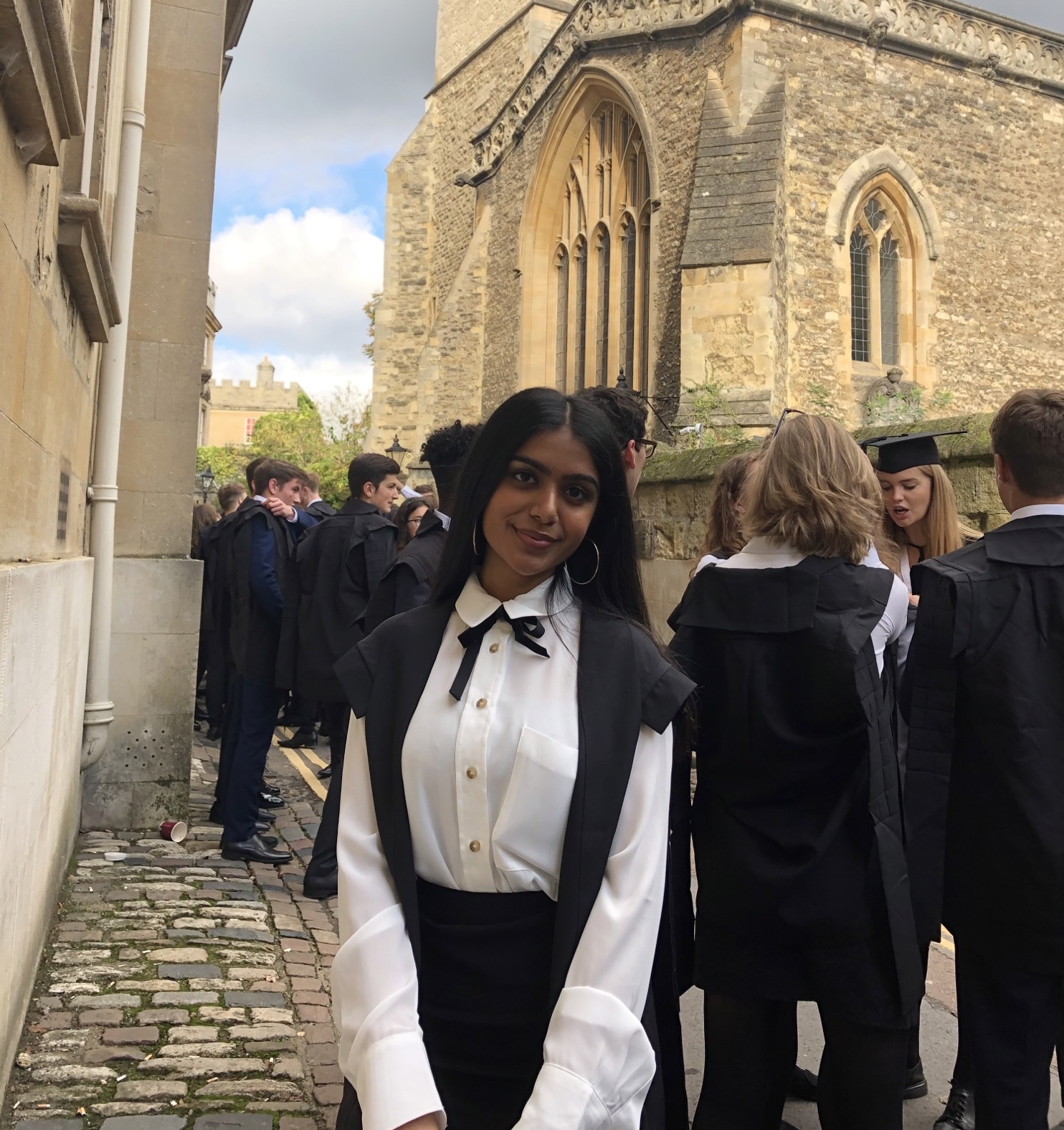
Anjali Depala - Part II (MChem) Student
Anjali is a Part II (Masters') student at St Edmund Hall doing her 4th year lab project in the Rodriguez-Macia group. Anjali's project aims to investigate and understand how the proton transfer pathway affects the active site properties and controls ligand binding to the open coordination site in semi-synthetic [FeFe] hydrogenases. The core techniques for her project are molecular biology and FTIR spectroscopy coupled with electrochemistry. She is particularly excited to spend more time in a lab-based environment and learn more about the equipment and techniques used in the group. In her free time, she likes going to the gym, doing yoga, and finding new vegan food places to enjoy!
Former members
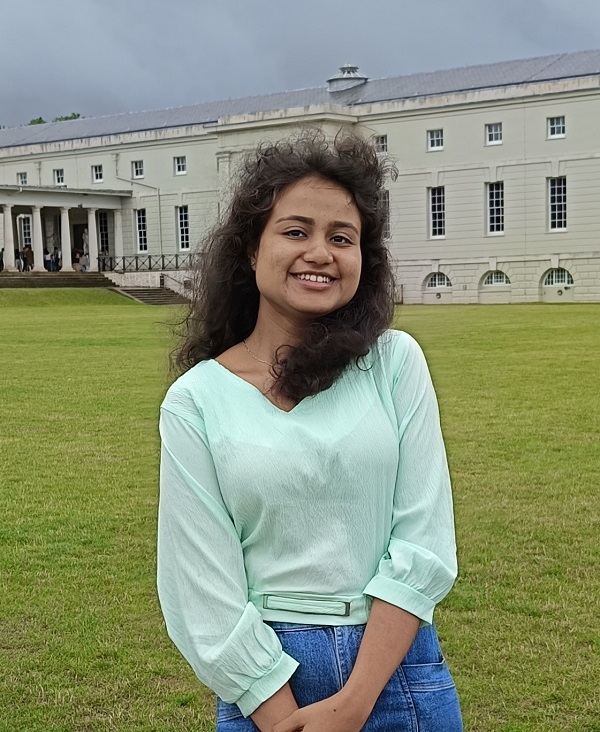
Shreya Singhal - Interdisciplinary Bioscience DTP DPhil rotation student.
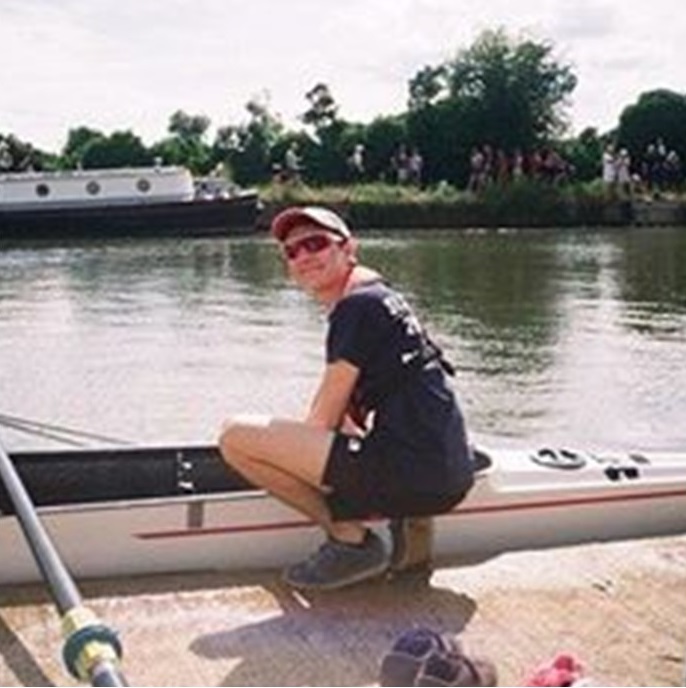
Joe Gellett - Part II (MChem) Student 2021-2022.
Photo Gallery
